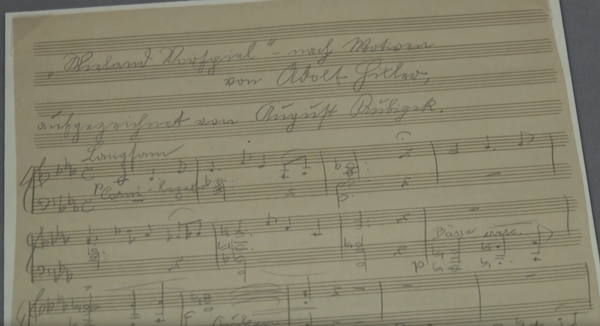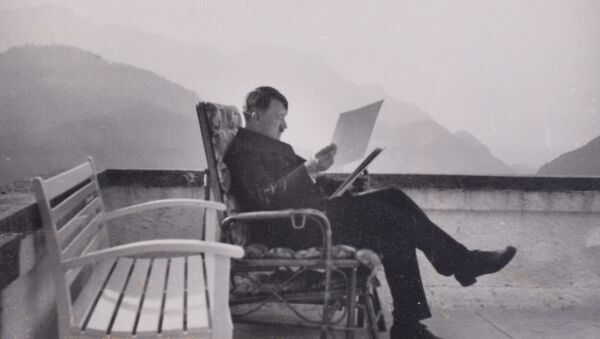"Young Hitler: the Formative Years of a Dictator" opens in Sankt Poelten, Austria, on Saturday and will include a number of items from the Nazi dictator that were collected by his friend August Kubizek from 1907 to 1920.
Christian Rapp, one of the curators of the upcoming exhibit, told the AFP that one of the most interesting pieces that will be on display beginning February 29 is a page of "Wieland der Schmied," or “Wieland the Smith,” Hitler’s attempted opera.

Rapp explained that Hitler, who was a known admirer of composer Richard Wagner, had tried to write his own opera just months after enrolling in piano lessons. Being that only one page of the opera is known to exist, it would appear that endeavor was short-lived.
It’s well documented that Hitler was a lover of the arts and dabbled in many different fields before he became the notorious Nazi Party leader. Sputnik reported last year that five paintings, presumed to be works of Hitler, went up for sale at the Weidler Auction House in Nuremberg, Germany. However, all of the paintings, which had varying starting prices that ranged up to $51,000, failed to attract the attention of buyers.
According to Rapp, Hitler’s artistic ambitions had a long history of failure and rejection.
The curator revealed that, as a teen, Hitler applied to the Vienna's Academy of Fine Arts in both 1907 and 1908, but was rejected both times.
"Whenever something went wrong, it was always somebody else's fault, not his own," Rapp revealed. He also said that Hitler’s "inflated sense of his own abilities" manifested itself in his many failed endeavors.
Co-curator Hannes Leidinger also explained that those who knew Hitler in his early years have been documented expressing that the youngster had an "intransigent, aggressive" character.
Paintings and architectural sketches of Hitler’s that were collected by Kubizek will also be on display in the exhibit. The curators told the AFP that they are hoping that the exhibit will provide insight into Hitler’s character and dispel certain ideas underpinning his genocidal doctrine.
"Ways of thinking take so long to become widespread in a society, and they take as long to be dismantled ... we will have work at that for decades," Rapp said.


